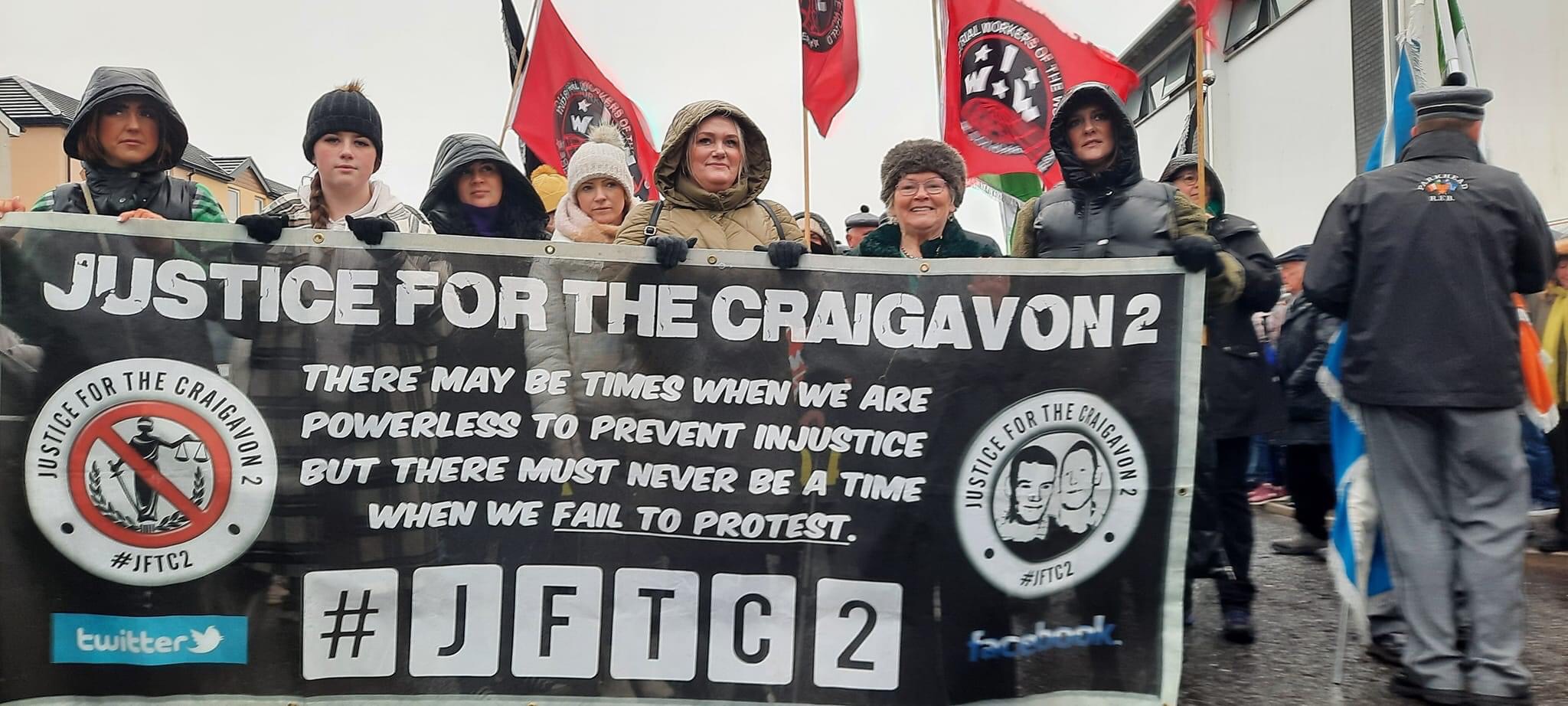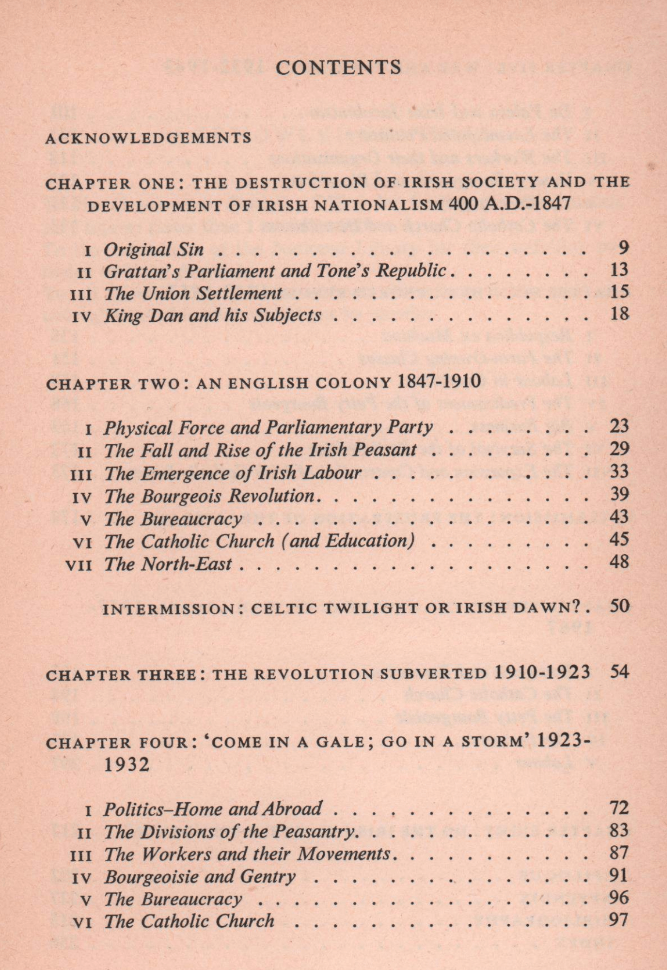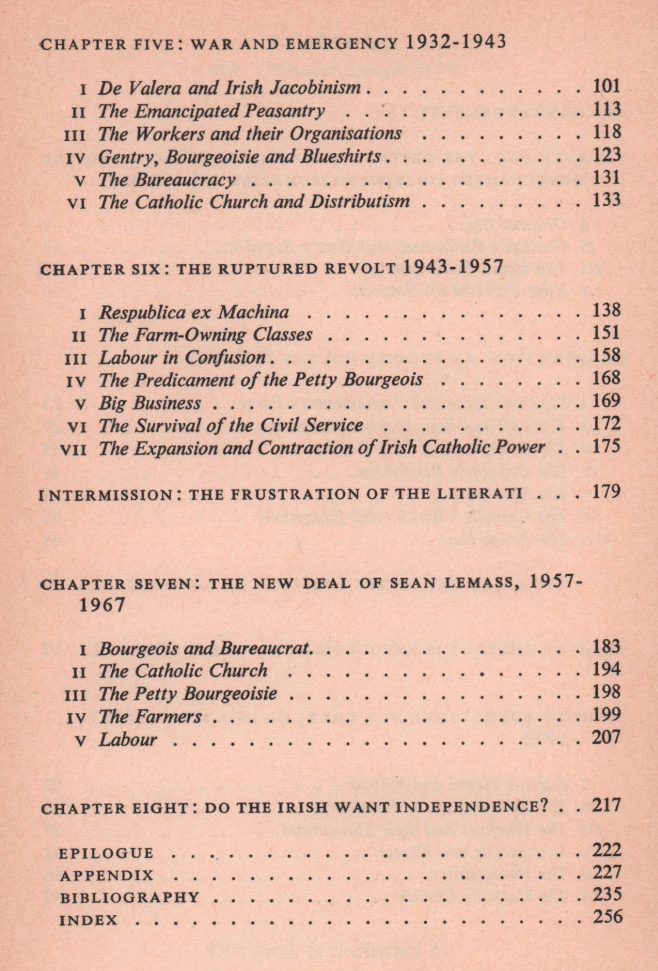Catherine Connolly wins: An historic victory for the left – Rupture Magazine
Paul Murphy, 25 October 2025
Catherine Connolly’s resounding victory in the Presidential election is a watershed moment. It is the first time that the left has won a majority of votes in a national election. This was not a narrow victory either; Catherine won the largest percentage and largest total vote of any Presidential candidate in history.
The combined forces of the political and media establishment threw everything they could at Connolly to try to stop the momentum behind her campaign. “Smear the bejaysus out of her”, as Ivan Yates suggested, was the strategy deployed. Her trip to Syria, her employment of a Republican convicted of a gun crime, her comments in opposition to US, French and British imperialism, as well as her previous work as a barrister, were all endlessly scrutinised and picked over.
The red thread running through the majority of the smears was the fact that she is out of touch with the political and media establishment in her defence of neutrality and opposition to aligning more and more openly with NATO. While Fine Gael’s Heather Humphreys pointedly refused to criticise what she termed “our allies” and their arming of genocide, Catherine Connolly openly criticised US funding of Israeli war crimes and the drive for rearmament in Europe, to the horror of most political commentators.
Despite this, her campaign, backed by all the ‘left’ parties and a movement from below, continued to gain support in successive polls and handily beat the establishment candidate. There will be attempts to minimise the extent of the victory by pointing to the calamities that struck the establishment parties – from the dropping out of the preferred Fine Gael candidate, Mairead McGuinness, due to illness, and the dramatic withdrawal of Fianna Fáil’s candidate mid-contest, to the unconvincing media performances of Heather Humphreys. But these calamities were mostly an expression of the declining social bases of Fianna Fáil and Fine Gael.
The fact that Fianna Fáil, the historically largest party in the state, could not find a credible candidate within its own ranks and the leadership felt compelled to go with a celebrity candidate in order to stop the corrupt former Taoiseach, Bertie Ahern, from being nominated, is itself instructive. That Jim Gavin was undone by a scandal of being a landlord who robbed money from a tenant was poetic justice for Fianna Fáil.
Similarly, the fact that Heather Humphreys proved to be such a poor candidate exemplifies how deeply out of touch Fine Gael is with the majority of people. They were convinced that Humphreys would prove a popular figure with a down-to-earth manner. In practice, she appeared uncomfortable with any questioning that went beyond soundbites. Despite her previous position as a Minister, she had never been faced with much challenging questioning. Might Mairead McGuinness have been a better candidate for FG? She would have been a more capable debater, undoubtedly. But in that case, the debate would have focused more on the direction of the European Union, and her close relationship with Israel-supporting European Commission President Ursula von der Leyen, the majority are still with Connolly.
Why did she win?
We should not forget that mainstream journalists largely missed the boat. They were busy telling us over and over how this presidential election was “dull” and “uninspiring”, while a movement was rapidly developing behind Connolly. For those who think real politics only takes place within the four walls of Leinster House, this was a boring campaign. But out in the real world, Catherine was motivating 1,500 young people to attend a fundraising gig at Vicar St., which was sold out in less than an hour, and rallies and meetings across the country were packed out on every occasion.
Much ink will now be spilt to avoid the most basic and simple conclusion: she won because the majority of people agree with her values, the values of the left, rather than those of Fianna Fáil and Fine Gael. A big majority support neutrality, support the right to housing, and aspire towards a more equal and just society. They’re horrified by the genocide in Gaza and want a president who is unambiguous about Palestinian freedom. Connolly’s message of a movement working to build what she termed ‘a new Republic’ resonated deeply.
Young people were the energy and vitality of the campaign. In the final Red C poll, she polled 57% amongst 18-34 year olds compared to Humphreys’ 17%. Amongst 35-54 year olds, she had 49%, and for over 55s, she was at 43%. The Irish Times interviewed 35 first-time voters, 29 were voting for Connolly, five were spoiling their vote, with only one voting for Humphreys! She also polled higher amongst women than men, and that was evident on the ground. Many in the campaign remarked on the similarities to the Repeal campaign for abortion rights – with young women as a driving force. Young people rejected the conservative parties and voted for someone who offered hope and an alternative.
The smear campaign was utterly ineffective and ultimately counterproductive for FG for a number of reasons. One is that Connolly never wavered in the face of the attacks. She didn’t give an inch and made no apologies for her criticisms of European rearmament, nor for hiring a convict. The notion that her outspokenness would work against her made no sense considering our current, much-beloved President, Michael D. Higgins, is also a critic of US imperialism and government policy. The nature of the Presidency itself also created a terrain more favourable for the left. The President’s lack of real power means people were free to vote for the progressive values they aspire to, without the establishment being able to credibly threaten dire economic implications.
Catherine’s personal qualities also came to the fore in the campaign. ‘Authentic’ was the word that many ordinary people used to describe her. All the videos of her playing with kids and adults alike, from the keepie uppies and dribbling a basketball, to clips of her dancing a céilí and playing the piano, revealed a human side to her that people found immensely appealing.
Another reason Catherine won by such a large margin is that a movement was energised around her. There is no precedent in recent history for a Presidential campaign to become a movement in this way. While Michael D. Higgins has proven to be an effective President, his 2018 campaign was actually supported by Fianna Fáil and Fine Gael, while he won in 2011 as a result of the collapse of support for Sean Gallagher after the final debate. The closest is the victory of Mary Robinson in 1990, backed by a coalition of Labour, the Workers Party and the Greens.
This was an insurgent, oppositional campaign organised by capable activists from the independent and party left. Over 15,000 people volunteered – the vast majority of whom were not members of any political party. Over half of those donated or became active in the campaign. This energy, combined with smart digital organising and social media messaging, meant that the Connolly campaign was far more effective than the Fine Gael campaign at meeting and discussing with voters. In every constituency, there was a significant amount of organised canvassing, on a level for a Presidential election that certainly hasn’t been seen in decades.
Spoil the vote?
With the ultra-conservative Catholic right narrowly failing to get sufficient nominations from TDs or Senators to get on the ballot paper, the far-right ran an active ‘Spoil The Vote’ campaign. This is again a first for Irish politics.
The over 12% they scored in spoils is another warning – the far right have their claws and influence in working-class communities. Yet, experience of canvassing more hard-pressed working class areas proves that this is not a lost battle, but one to be engaged with. Most of those considering spoiling their ballot were open to being convinced that the best protest was to defeat the political establishment. Deep community organising and trying to mobilise people in action on issues like the cost of living crisis will be essential in order not to cede these communities to the far-right.
Although the far right wasn’t directly on the ballot, their rise and the increase in racist attacks and reactionary sentiment were undoubtedly a factor in the campaign. Many rightly saw supporting Connolly as a way of opposing the rightward political turn, which Fine Gael and Fianna Fáil have both leaned into. Her victory is part of a counter-current to the rise of the far-right.
Connolly also stood out as a long-time campaigner for investment in the Gaeltacht and support for the Irish language. That she learned to speak fluent Irish well into her 40s underscored her commitment to the language and Gaeltacht communities. So, we should see her campaign as part of a new revival of the Irish language, seen in the popularity of Kneecap and other artists. This is part of forming a progressive identity of what it is to be Irish today, relating to our anti-colonial history, and in opposition to the narrow white nationalism of the far-right, who misuse the tricolour.
Socialist left – a key backbone of the campaign
The socialist left, in particular People Before Profit and independent left activists, were a crucial part of the Connolly campaign. Many of the key activists playing central roles nationally were veterans of previous successful left-led campaigns.
The decision of People Before Profit to throw itself into this campaign, despite the limitations of the position of Presidency, was vindicated by the dynamism of the campaign, the result and the opportunities that open up now. While the level of activism on the ground was less than what might have been possible with a longer campaign, it nonetheless represents a crucial victory after a challenging general election and opens new opportunities.
Independent activists who may have been previously sceptical about PBP have noted the constructive and non-sectarian approach taken by PBP. They should consider joining PBP to work together to build it into a mass pluralist and ecosocialist party.
Those sections of the socialist left who gave grudging endorsements for Catherine while criticising PBP’s engagement in the campaign will hopefully reflect on what happened and what they stood aside from. A left-right polarisation took place, and the left won. Thousands of new activists were mobilised for the first time and gained organising experience. Momentum that had slipped to the right has been regained by the left.
Other parties in the Connolly camp
The Connolly campaign also had a dynamic within the other parties that supported her. The Social Democrats were with PBP from the beginning in supporting Catherine Connolly. They helped to create a momentum amongst the left, which effectively left Labour and the Greens with a choice between supporting Connolly or not having any candidate. Social Democrat party members enthusiastically engaged at a local and national level.
Sinn Féin came on board the campaign relatively late, after considering running its own candidate. They qualitatively added to the campaign at a central and local level, working constructively, while also using it as an opportunity to re-popularise Mary Lou McDonald as a future alternative Taoiseach. This was the first serious attempt to implement the strategy of a “progressive left republican bloc which respects the independence and autonomy of cooperating political parties”, first floated after the last general election by the Sinn Féin national chairperson, Declan Kearney.
By any standard, it has been a success, not just with the victory of Catherine Connolly, but with a 5% jump in the polls for Sinn Féin. Working with others has proven effective at boosting support for SF. For Sinn Féin members and the leadership, the key question is whether they are now willing to rule out coalition with Fianna Fáil and Fine Gael and put all their energy into a campaign for a left government.
For the Labour Party and the Greens, Connolly’s campaign was polarising. It exposed and undermined their most right-wing sections. Former Labour leader Alan Kelly was wheeled out almost weekly by the media to declare his opposition to Catherine Connolly and his support for Fine Gael. The media reported wider disquiet amongst the parliamentary party, although it did not publicly materialise. With Connolly having won so decisively, Kelly’s position is now weakened.
The same happened in the Green Party, with former TD Brian Leddin, resigning from the party in opposition to supporting Catherine Connolly, mostly it seems because of her opposition to war and imperialism. A smattering of others followed him out the door.
The diminishing of opposition to left co-operation in Labour and the Greens should make it easier for their leaderships to pursue this further if they wish. A major obstacle there, though, is that up until now, the progressive alliance proposed by both Labour and the Greens (overwhelmingly directed at the Social Democrats) has been to maximise the negotiating leverage of these parties in a future coalition with either Fianna Fáil or Fine Gael. That is not what those involved in the Connolly campaign are looking for – they rightly want to clear FF and FG out.
What next?
For the thousands of people who actively engaged in the Catherine Connolly campaign and for many more who passively supported it, the big question is: what next? Nobody believes that winning the Presidency is enough to change the country, given the very limited powers associated with it. Catherine Connolly will represent our values in the Presidency well and will prove to be a thorn in the side of the political establishment. Undoubtedly, the columns from commentators tut-tutting about the President overstepping the limits of the role, which became so common under Michael D. Higgins, will continue.
But people understand that to effect the change we need, we need to win much more than the Presidency. The big lesson is that if the left unites and seeks to mobilise people, it can win. The dynamic of unity can create confidence and enthuse others to get involved. The question of a Left government once again comes increasingly centre stage.
However, any attempt to develop an initiative which focuses only on the next general election is doomed to failure by allowing the energy and activism to dissipate. Playing the role of responsible government in waiting between 2020 and 2024 proved calamitous for Sinn Féin,
People who are suffering under the impact of repeated hikes in energy and grocery prices cannot wait. Those who are facing eviction or massive rent hikes under the government’s new plans cannot wait. Those who want meaningful action for Palestine and defence of our neutrality cannot wait. Joint initiatives must be organised, together with unions and social movements – to defend the Triple Lock; to demand the full implementation of the Occupied Territories Bill before Christmas; to end the cost of living crisis through price controls and an end to profiteering; and to implement an eviction ban alongside meaningful rent controls and public house building.
However, defensive struggles alone are insufficient. We need to raise people’s sights for the possibility of a Left government for the first time in the history of the state. People Before Profit is proposing to other parties and individuals the organisation of a major conference of the Left in the New Year to discuss how left co-operation can be deepened with a view to presenting a clear choice in the next general election: Fianna Fáil and Fine Gael, and those who would prop them up, versus a Left government.
All of this poses complicated questions to the socialist left. We understand that the capitalist system, where profit dominates, simply cannot deliver what people demand and need – the right to a home and a good life, a world without war and oppression, the right to a sustainable and liveable future for our children. We therefore will only enter a government that commits to a people-power strategy of mobilising from below to overcome the opposition of the powerful capitalist class and deliver ecosocialist change. That is far from the programme of the other major parties supporting Connolly.
Nonetheless, we actively want the rule of Fianna Fáil and Fine Gael to end. We want a left government, even on a programme far weaker than the ecosocialist one we would advocate. We want this government and the approach of reforming capitalism to be tested before the masses. We are therefore open to participating in this dynamic towards a left government, including committing to vote to allow this government to be formed, despite the very significant limitations of the likely programme. The key condition for us is that we retain our right to independence, to put forward our own ecosocialist position, and continue strengthening our connections with communities to mobilise the power of people from below.
In 1843, Karl Marx provided useful guidance for socialists approaching complicated situations:
”we do not confront the world in a doctrinaire way with a new principle: Here is the truth, kneel down before it! We develop new principles for the world out of the world’s own principles. We do not say to the world: Cease your struggles, they are foolish; we will give you the true slogan of struggle. We merely show the world what it is really fighting for, and consciousness is something that it has to acquire, even if it does not want to.”
Significant numbers of people are now anxious to take the next steps after the Connolly campaign to work towards getting rid of Fianna Fáil and Fine Gael and electing a left government. We should be right there, alongside them, organising and taking steps together, while using it as an opportunity to win people to the argument put forward by James Connolly in 1897:
“If you remove the English Army tomorrow and hoist the green flag over Dublin Castle, unless you set about the organization of the Socialist Republic your efforts will be in vain.”
To win a truly new Republic, it will not be enough to replace the government or even to write a new Constitution. A socialist Republic with working people and the oppressed in power is needed.
______________________________________
Paul Murphy is an Eco-socialist TD for People Before Profit in Dublin South West and a member of RISE
Originally published by Rupture.ie at Catherine Connolly wins: An historic victory for the left







